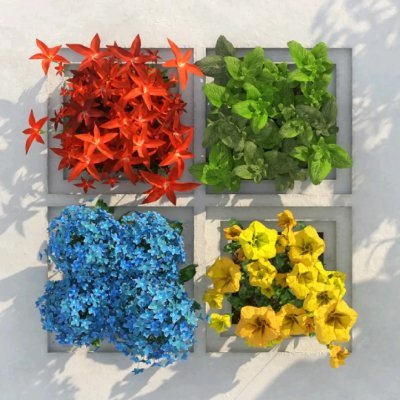
Aparna Chennapragada
@aparnacd
Followers
14K
Following
2K
Media
57
Statuses
720
CPO@Microsoft on AI for Work. Founder, Google Lens. Board@eBay. Past: CPO@Robinhood. VP@Google. Board@Capital One. Eng@Akamai
San Francisco Bay area
Joined March 2008
I wrote (and sketched) about it here: https://t.co/e5tMyxmlu7
0
0
1
What’s common between a work meeting, furniture shopping, and language learning? Today, almost nothing. I predict though that they will all collapse into the same cognitive interface: AI that can see, hear, reason and respond. Every era of computing collapses entire industry
3
0
5
Ask and ye shall receive...clippy 📎📎 @tbpn @johncoogan @jordihays
@jacobandreou and team got you. @satyanadella approves!
1
0
6
So how do we go from designing for usability to learnability? I wrote (and sketched) about it in my My latest essay: Designing for Learning https://t.co/R2fcm44Uaa
0
0
2
In AI products, the interface is the feedback surface. Every Accept, Edit, or Delete teaches the model something. So the product design question is no longer just “is it easy to use?" it’s also “can the system learn from use?”
1
0
2
Each era of computing had its own learning loops. PC era: manual loops e.g. bug reports. Web era: programmatic loops e.g. clicks. AI era: self-learning loops e.g. tabs, accepts/rejects, drafts.
0
0
2
When the model IS the product, all UX is RLHF. Every edit, correction, and click becomes a training signal. Product designer’s new craft: building for learnability, not just usability.
2
3
10
Great work @uncorkcap @Bandrew @jeffclavier and team. Fun chatting with @Bandrew, glad to be on the same roster as @levie and @kevinweil.
I’ve been to a number of AGMs this year (the annual meeting VCs put together for their LPs), but @uncorkcap really brought their A-game with an ALL-STAR roster — @levie of @Box, @kevinweil of @openai, @aparnacd of @microsoft, just to name a few. (And that doesn’t include the
1
0
7
Great chatting with @theinformation and Akash Pasricha this morning, on how we are building agents that go beyond answering questions to reasoning and doing tasks for you, like @Microsoft Researcher.
Today @aparnacd, Chief Product Officer, AI for Work at @Microsoft, joins TITV for a deep dive into current strategy. Tune in at 10 am PT / 1 pm ET: https://t.co/oGYeAGSCMB
0
0
5
Excited to share my thoughts on the future of work in the AI era at @TEDAISF next week.
📣 @aparnacd — Chief Product Officer, Experiences & Devices at @Microsoft — joins Day 2 at #TEDAISF@% A global leader in Human-Centered AI, shaping Work 3.0 and how millions think, create & collaborate. 📅 Oct 21–22, SF 👉 Apply: https://t.co/s42VistGzH
0
0
5
Excited to be building the next new thing, alongside these and many other builders and engineers at @Microsoft !
We’re spotlighting some of the leading innovators who’ve joined Microsoft over the years and are now shaping the future of AI. From RSS to Python to Google Docs – meet people behind the platforms and check out what they’re creating next: https://t.co/6AxXv860TI
0
0
3
What’s your WOW:WTH ratio? In AI and algorithmic products, it seems as important to minimize the what-the-hells as it is to multiply the wows. And the cost of a WTH grows with stakes and autonomy. The more consequential and independent a system, the less room there is for rude
3
0
5
I wrote and sketched about it on Substack: https://t.co/4OckFxN94c
0
0
2
The second principle of designing for trust in AI products -- Make UI proportional to AI. Products today are stuck in NERD mode (generally right, but too hedging and timid) or swing to TECH BRO mode (overconfident, make up stuff and don't know how to say “I don't know”).
3
0
5
I wrote (and sketched) about it on substack: https://t.co/JFb2QFJAFI
0
0
7
The first principle of trust in AI products: Show Your Work. PC era had progress bars. Web had search result counts. Mobile had pull-to-refresh. What are the potential receipts for the AI era? "Thought for 2 minutes"? Chain of thought? Progress logs?
3
0
14




